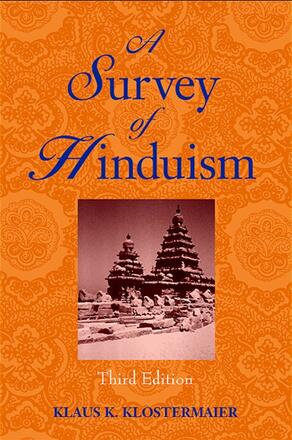
A Survey of Hinduism
Third Edition
Alternative formats available from:
The third edition of this well-regarded introduction to Hinduism adds new material on the religion’s origins, on its relations with rival traditions, and on Hindu science.
Description
This third edition of the classic text updates the information contained in the earlier editions, and includes new chapters on the origins of Hinduism; its history of relations with Buddhism, Christianity, and Islam; Hindu science; and Hindu measures of time. The chronology and the bibliography have been updated as well.
A comprehensive survey of the Hindu tradition, the book deals with the history of Hinduism, the sacred writings of the Hindus, the Hindu worldview, and the specifics of the major branches of Hinduism—Vaisnavism, Saivism, and Saktism. It also focuses on the geographical ties of Hinduism with the land of India, the social order created by Hinduism, and the various systems of Hindu thought. Klaus K. Klostermaier describes the development of Hinduism in the nineteenth and twentieth centuries, including present-day political Hinduism and the efforts to turn Hinduism into a modern world religion. A unique feature of the book is its treatment of Hinduism in a topical fashion, rather than by chronological description of the development of Hinduism or by summary of the literature. The complexities of Hindu life and thought are thus made real to the reader, and Hindus will recognize it as their own tradition.
Klaus K. Klostermaier is University Distinguished Professor Emeritus in the Department of Religion at the University of Manitoba, Canada. He is the author of many books, including The Nature of Nature: Explorations in Science, Philosophy, and Religion.
Reviews
"Klostermaier has now made a great book even better." — CHOICE
Praise for the Second Edition
"The first edition of this book appeared in 1989 and rapidly proved its worth as a textbook on Hinduism that was more inclusive and accessible than most—especially for Western readers … Although not meant primarily for specialists, it was so complete in its presentation of Hinduism that specialists found a place for it on their shelves as a ready reference … This book offers the most comprehensive, balanced, accessible and yet deeply scholarly presentation of Hinduism in English." — Harold Coward in Pacific Affairs